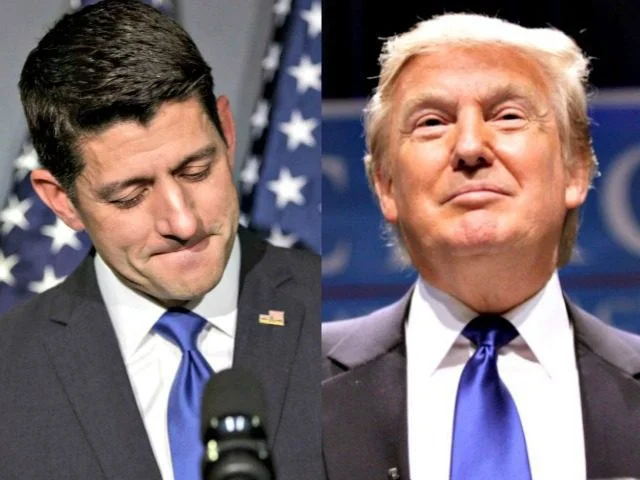Of greater note is how gender does and doesn’t come into play: if you’re a conservative male journalist you really adhere to notions that say emoji-aren’t-for-you. If you’re a celebrity male, you’re perfectly happy using oodles of emoji, as with Snoop Dogg, Kyle MacLachlan, DJ Khaled, William Shatner, Diplo, and Chad Johnson.
Read MoreTldr: gender doesn’t make for good soundbites if you’re doing it right.
Here’s a headline from Politico that is counter-intuitive, aggravating, and compelling: Donald Trump talks like a woman. I’d like to speak out on behalf of a bunch of linguists who say KNOCK IT OFF.
Read MoreI’ve been vaguely obsessed by Donald Trump’s use of believe me. How does he use it? How should we interpret it? In pursuing these questions, we’ll see how much more he uses believe me than everyone else and how he puts it in a different place than everyone else, too.
Read MoreIf you follow politics in America even a little bit, you know that Republicans talk a lot about taxes and that Donald Trump loves the word tremendous. But how do these rank relative to each other and to what Democrats (and Hillary Clinton, in particular) tend to talk about? Well, one finding is that over the years, Republican candidates have been even more preoccupied with Hillary Clinton than they have been with Ronald Reagan. Another finding is that the debates for the current election have been ~157% more negative than all previous debates.
Read MoreThis post wraps up a series I’ve been doing on using machine learning models to understand recent American political debates (here and here). By taking all the transcripts of the debates since last year, I show which words and phrases most distinguish debaters’ styles and issues. Training a computer to identify speakers is usually thought of as a way of doing forensics or personalization. But here, I’m interested in something closer to summarization. If you can pick one section of talk for each candidate from the last debate, which moments are most consistent with everything they’ve said up to then?
Read MoreLet’s teach a computer to guess who-said-what in the first US presidential debate between Hillary Clinton and Donald Trump. This is a way of finding out which moments the candidates were most like themselves — as well as when they were most like Bernie Sanders or Ted Cruz.
Read MoreDonald Trump isn’t “there yet” in supporting Republican Speaker of the House Paul Ryan. Ryan has repeatedly chastised Trump and famously said he wasn’t there yet on Trump earlier this year. How strong is his distaste? Did he (and his writers) overcome it at the RNC Convention?
Read MoreWe know that Republicans and Democrats talk differently, but what’s the best way to describe these differences? Commentators note the relative darkness of the Republican National Convention and the focus on optimism and higher production quality for the Democratic National Convention. Looking at the words speakers use helps–but you can’t just use simple frequency (for details, check out the methodology section at the bottom).
Read MoreWhat makes someone on Reddit posting about conspiracies sound particularly paranoid? How do corporations detect employees committing fraud? When consumers file complaints against financial institutions, how do they tell their stories? Rationality and causation are themes that unite these three questions.
Read MoreLecture and section notes for John Rickford's class on African-American Vernacular English. "The English vernacular spoken by African Americans in big city settings, and its relation to Creole English dialects spoken on the S. Carolina Sea Islands (Gullah), in the Caribbean, and in W. Africa. The history of expressive uses of African American English (in soundin' and rappin'), and its educational implications."
Read More








